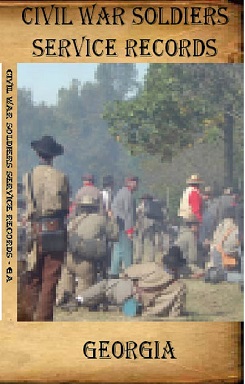First Families of Bartow County, GA
Bartow County was created from the Cherokee lands of the Cherokee County territory on December 3, 1832, and named Cass County, after General Lewis Cass (1782–1866) Secretary of War under President Jackson, Minister to France and Secretary of State under President Buchannan, until renamed on December 6, 1861 in honor of Francis S. Bartow.By the time of the first Cesus in 1840, the population of the County was 9,390. That number had risen to 15,724 by 1860 and the coming of the Civil War.
The original county seat was at Cassville, but after the burning of the county courthouse and the Sherman Occupation the seat moved to Cartersville, where it now remains. The town of Cassville never revived and Kingston is today a mere shadow of its former self.
The county was profoundly affected by the Civil War. Property destruction and the deaths of one-third of the county's soldiers during the war caused financial and social calamity for many. On May 18 and 19, 1864, General Thomas led the Army of the Cumberland after General Hardee's Corps of the Army of Tennessee, and General McPherson led his Federal Army of the Tennessee flanking Hardee's army to the west. This huge army was disruptive and sought food. Elements were out of control and sacked homes depleting meager supplies.[1] Of the 38 military Companies formed in Bartow County, 9 ended up fighting on their own farms defending their own families when Sherman's troops ransacked the county. There are numerous mentions in the records of men deserting as the Confederate troops retreated towards Kennesaw Mountain in May of 1864.
Slaves gained their freedom, and briefly exercised political franchise through the Republican Party. In 1870, about 1 black family in 12 owned real estate. Over a third of the blacks lived in white-headed households, working as domestic servants and laborers. The great majority of freedpeople were day laborers or farm laborers, while a sizable minority occupied skilled positions such as blacksmiths, wheelwrights, and iron workers.[2]
Sources: Wikipedia
(1) Howard, Frances Thomas (2007). In and Out of the Lines. Cartesville, Georgia: Etowah Valley Historical Society. pp. 9, overleaf.
(2)Keith S. Hébert, "The Bitter Trial of Defeat and Emancipation: Reconstruction in Bartow County, Georgia,
1865–1872," Georgia Historical Quarterly, Spring 2008, Vol. 92 Issue 1, pp 65–92




